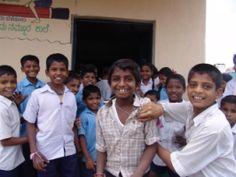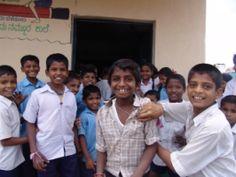
Humanitarian and Development
Place
Halligudi, India
Sponsor
Thierry Vandevelde, Veolia
Grant(s)
30,000 € to the Selection Committee at 2006/03/28
Project leader
France Inde-Karnataka

France Inde-Karnataka, created in 1994 and chaired by Xavier Emmanuelli, set up a local hospital structure in Halligudi, in a particularly deprived region of the State of Karnataka in southeast India. The hospital caters for inhabitants of the town but also people from the surrounding villages, around 40,000 inhabitants in all. Every day, it provides medical treatment for some 100 patients, despite its very limited resources.For instance, water comes from two wells located 12 km from the hospital. It is then stored in three storage tanks on the roof before being distributed around the buildings. It is not treated and contains high levels of fluorine. Electricity supply is also problematic. The hospital relies on the public grid, which is subject to frequent outages.
Reverse osmosis and solar energy
Contacted by France-Inde Karnataka, Veolia Environnement decided to meet the requirements of this hospital in two ways. Veolia Waterforce agreed to provide the technical expertise the non-profit organization and the hospital were unable to provide through a first mission leading to formulation of an emergency investment program. It recommended installing two small-capacity reverse-osmosis purification units with the aim of immediately improving water quality. The next step will be to increase water storage capacities and the distribution network by installing solar-powered pumps. Lastly, a back-up generator set will be installed for power outages. Once these emergency measures have been put in place, a more detailed study will be carried out to identify a potential new source of water.The second measure decided on by Veolia Environnement was to provide a grant. The Veolia Foundation approved a grant of 30,000 euros to finance the equipment recommended.

